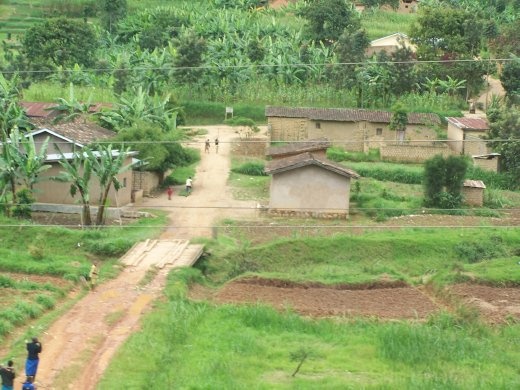After an average dinner the night before (soggy pasta with ham and cheese), and a really average breakfast in the morning (soggy toast with jam), we headed off to Ruhengari, or Musanze as it is now called, in part due to the President's desire to avoid scarring the next generation by association with genocide ravished areas. To my surprise the roads continued to be paved - and were all the way to the trekking meeting point (although the roads from the meeting point to the start of the treks were 4WD only, and even then we burst a tire).
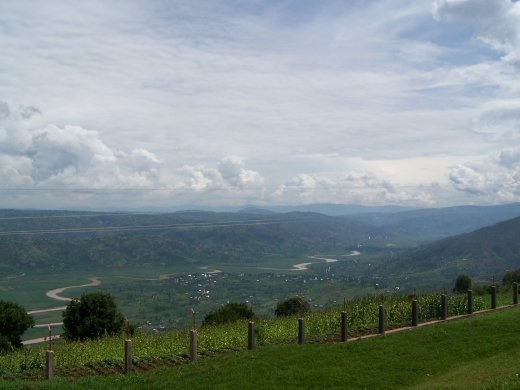
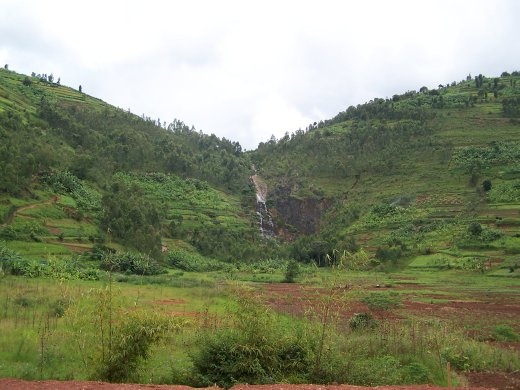
The roadside view on the way to Musanze looks quite similar to New Zealand, but the deforested areas would put a horticulturist to shame. Every inch of the towering, vertigo-inducing steep, steep slopes is covered with vegetables. Not an acre is wasted. Beans, peas, sweet potatoes, sugar cane, pineapples, maize, and banana trees grace the landscape. Coffee and tea plants too - which are Rwanda's largest export. Eucalyptus trees glitter in the sunlight on the sides of the roads. They have healing properties, although they are considered more of a pest as they degrade the soil.
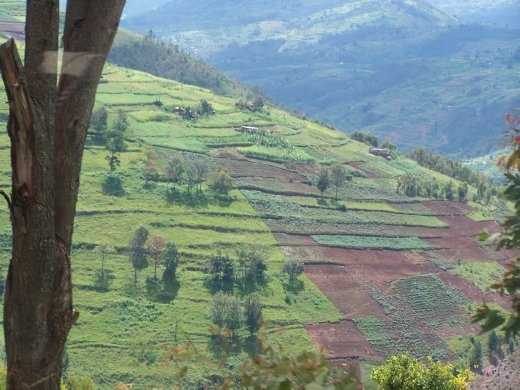
Unlike tractors, plastic coated hay bales, and four wheeler motorbikes, tiny figures with hoes dot the fields. "The Land of a Thousand Hills" must surely be a misnomer, because we drove over at least that many on our way North. Up and down, up and down, all the while we passed hundreds of people. Not loitering or congregating like in Sierra Leone, but purposeful. Many were pushing huge sacks of potatoes in both directions. Omar told us that they were taking Irish potatoes, which are only grown in the North, south, and returning with sweet potatoes, back North. Many of the sellers cover 70 kilometers (50 miles) every day. Because running water is not always available, we also saw many people, including kids, lugging yellow jerry cans up the hills.
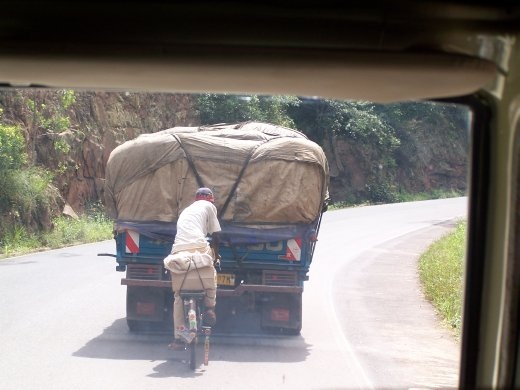
Traffic to Muzzange also highlighted how polite Rwandans are. For a start, they indicate when they overtake or turn. But they also use their right blinker to say "pass me if you'd like" and their left blinker to say "don't overtake just yet, there's a car coming in the opposite direction." In addition to being nice, this was quite necessary because giant blue trucks drive slow as can be up the hills. Omar told us these are carrying the local beer, Primus. Rwandans must drink a lot, because there were a lot of trucks. Banana beer is another staple of the Rwandan diet, and is much cheaper ($0.20 rather than $1.20). Incidentally, things are quite expensive here, compared to Sierra Leone and Ethiopia. Some things are even Western prices.
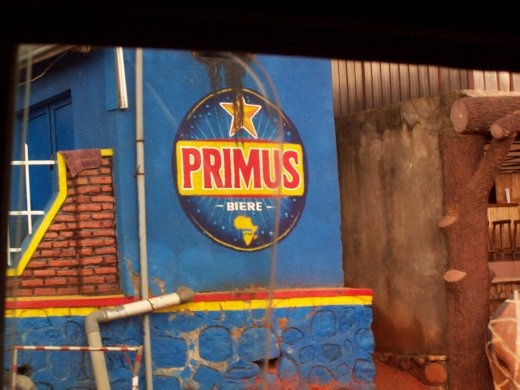
We saw only a few cows, as they are illegal to farm next to the road (no fences) but the ones we observed further out in the provinces have huge horns. The concentration of goats also increased further out, and there is evidence of more sustainability than in Sierra Leone, as we also saw baby goats, and fat, juicy chickens.
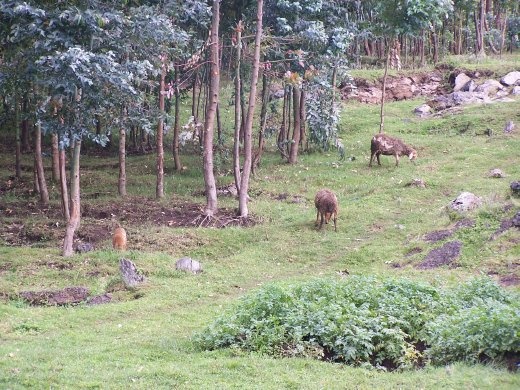
We settled into our nice hotel that night, the Hotel Volcano Gorillas. Our dinner was worse than repulsive. I ordered three cheese macaroni and, after a 45 minute wait, I got a plate of fusili doused in tomato sauce and a thick sprinkling of cheddar on top. We have started eating from the buffet for breakfast, lunch, and dinner, which seems safer. Ide has taken a fancy to goat stew, but unfortunately, while the rest of Rwanda is lovely, in my opinion the food is sorely lacking. Most dishes are trying unsuccessfully to be Western, and the local cuisine is bland beans in spice (i.e. flavor)-free sauce. Dad - you would love it!
